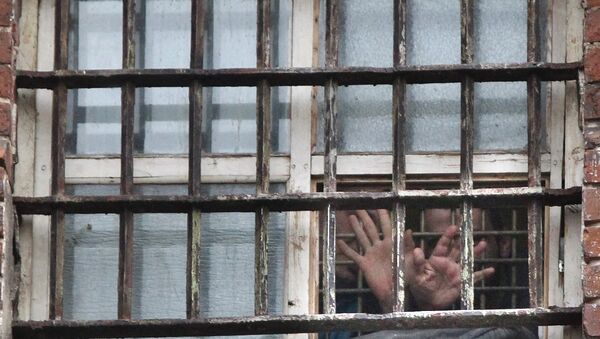An Ontario court on Friday saw a class-action lawsuit against the federal government whose ability to properly handle mentally ill prisoners has been undermined by series of claims.
Activists have voiced concerns over the "cruel and unusual punishment" for mentally ill prisoners, claiming that the government is failing to provide qualified staff and they rely too heavily on the frequent use of "force, compliance and behavioral inducement methods."
Prisoners launch class action over solitary confinement. Respect to colleagues at Koskie Minsky for this epic case. http://t.co/LCrxS1zUOw
— David Sterns (@david_sterns) July 18, 2015
Attorney James Sayce stressing federal prison system' imperfection underscored that "prisoners in federal institutions who suffer serious mental illness are not being given the treatment they are statutorily entitled to".
Allegedly rigid conditions the prisoners have been kept in is a subject of the lawsuit but has not yet proven in court, said the statement.
"They are being warehoused and they are being subjected to extended periods of time in solitary confinement because the federal prison system doesn't know what to do with them," said Sayce. "The effect is…the illnesses get worse, and you have serious pain and emotional stress being suffered by these unwell inmates."
Prison staff is blamed for treating mentally ill inmates with "contempt, prejudice, indifference and abuse."
At least $600 million in damages are expected to be provided if the case is certified by the court.
The statement also questioned the charge that the government uses extended solitary confinement to "contain and manage" mentally ill inmates.
According to the claim, "prisoners diagnosed with serious psychological disorders and illnesses have suffered severe harm as a result of the defendant's policies and procedures".
Correctional Service Canada spokesman Veronique Riox refused to provide any comment saying the case is now under the scrutiny of the court.
"Canadian law and correctional policy allows for the use of administrative segregation in limited circumstances, when there is no reasonable alternative and for the shortest period of time necessary", she told the Canadian Press.
Most of Canada’s prisoners have never been convicted of anything. Why are they in jail? http://t.co/m0lMtsJJ2P #mentalhealth
— Mental Health Feed (@MHealthFeed) July 18, 2015
Hundreds of mentally ill prisoners are expected to participate in the case with lead plaintiff Christopher Brazeau, a 34-year-old man sentenced to 12 years in prison for robbery and who was later determined to have developed mental problems.
"Mr. Brazeau suffered significant worsening of his mental health problems during his time in solitary confinement, including anxiety, depression, self-harm, suicidal thoughts and visual and auditory hallucinations," the claim says.



